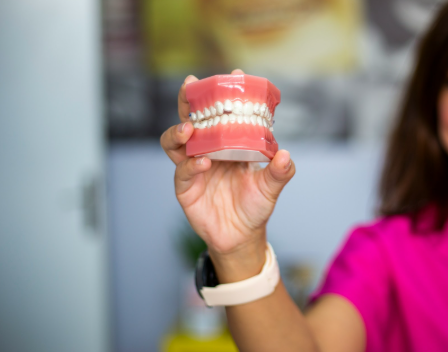

The world of dentistry has experienced remarkable changes in recent years, particularly in how dentures are designed and created. Gone are the days when patients had to endure messy impression materials and lengthy adjustment periods. Today, artificial intelligence and digital scanning technology are transforming the entire denture creation process, making it faster, more comfortable, and significantly more accurate.
For decades, getting dentures meant multiple visits to the dentist, uncomfortable impressions, and often several rounds of adjustments to achieve a proper fit. This traditional approach, while effective, was time-consuming and sometimes unpredictable. Patients frequently experienced discomfort during the fitting process and had to wait weeks between appointments for modifications.
Creating dentures the old-fashioned way involved taking physical impressions of a patient's mouth using putty-like materials. These impressions were then sent to a laboratory where technicians manually crafted the dentures. This process was prone to human error and interpretation differences, which often resulted in dentures that required multiple adjustments or complete remakes.
Partial dentures presented even greater challenges because they needed to fit precisely around existing teeth while providing stable support for chewing and speaking. The complexity of designing clasps and ensuring proper bite alignment made the traditional process even more complicated and time-consuming.
Modern dental practices now use advanced 3D scanning technology to capture incredibly detailed images of a patient's mouth. These digital scans eliminate the need for uncomfortable impression materials and provide far more accurate measurements than traditional methods. The scanning process takes just a few minutes and creates a precise three-dimensional model of the patient's oral cavity.
What makes this process truly revolutionary is how artificial intelligence analyzes these digital scans. The AI software can identify optimal placement points, calculate precise measurements, and even predict how the dentures will function during everyday activities like eating and speaking. This level of analysis was simply impossible with traditional methods.
When AI software receives the digital scan data, it begins a complex analysis process. The system examines the patient's jaw structure, gum tissue health, and remaining teeth positions. For patients needing partial dentures, the AI specifically focuses on how the new teeth will integrate with existing ones, ensuring proper alignment and bite distribution.
Artificial intelligence considers factors that human designers might overlook or find difficult to calculate manually. It analyzes stress points, determines optimal material thickness, and predicts wear patterns over time. This comprehensive evaluation results in dentures that fit better from the very first try-on.
Flexible partial dentures benefit tremendously from this AI-driven approach. The software can calculate exactly how much flexibility is needed in different areas of the denture, ensuring comfort while maintaining durability. This precision is particularly important because flexible materials behave differently under various pressures and movements.
One of the most impressive aspects of AI-assisted denture design is how it selects appropriate materials for each individual case. The system considers factors like jaw strength, eating habits, and oral health conditions to recommend the most suitable materials. For patients who might benefit from flexible partial dentures, the AI can determine whether traditional rigid materials or newer flexible options would provide better comfort and functionality.
The AI also customizes the aesthetic aspects of dentures, analyzing facial features, skin tone, and existing tooth characteristics to create the most natural-looking results possible. This attention to detail helps ensure that partial dentures blend seamlessly with remaining natural teeth.
Digital workflows include built-in quality control measures that catch potential problems before the dentures are manufactured. The AI software can simulate how dentures will fit and function, identifying any areas that might cause discomfort or instability. This virtual testing process eliminates many of the surprise issues that occurred with traditional denture creation methods.
The precision achieved through AI analysis is remarkable. Measurements are accurate to fractions of millimeters, and the consistency between design and final product is exceptional. This accuracy translates directly into better patient experiences with fewer adjustment appointments needed.
Patients who receive AI-designed dentures often report significant improvements in comfort and functionality compared to traditionally made dentures. The precise fit reduces common problems like slipping, clicking sounds, and sore spots that develop from poor-fitting dentures.
For those who choose flexible partial dentures, the combination of AI design and advanced materials creates an especially comfortable experience. The flexible materials adapt naturally to mouth movements, while the AI-optimized design ensures proper support and stability.
The speed of the entire process is another major advantage. What once took weeks or months can now be completed in days. Patients spend less time in the dental chair and experience less disruption to their daily lives.
As AI technology continues to advance, we can expect even more improvements in denture design and manufacturing. Machine learning algorithms will become better at predicting patient needs and preferences, leading to even more personalized solutions.
The integration of AI in denture creation represents a significant step forward in dental care. By combining precise digital scanning with intelligent analysis, patients can now receive dentures that fit better, feel more comfortable, and look more natural than ever before. This technological advancement benefits everyone involved, creating a more efficient process for dental professionals and a more pleasant experience for patients seeking to restore their smiles.
scanO is an AI ecosystem transforming oral health for patients, dentists, corporates, and insurers worldwide

© 2025 Trismus Healthcare Technologies Pvt Ltd